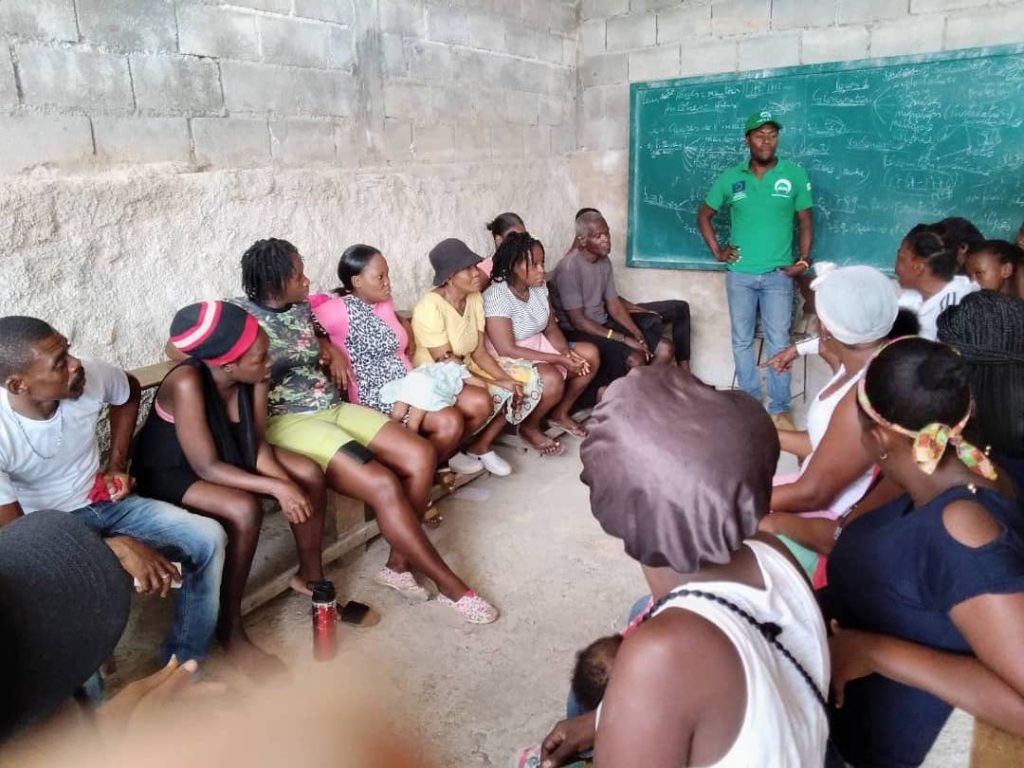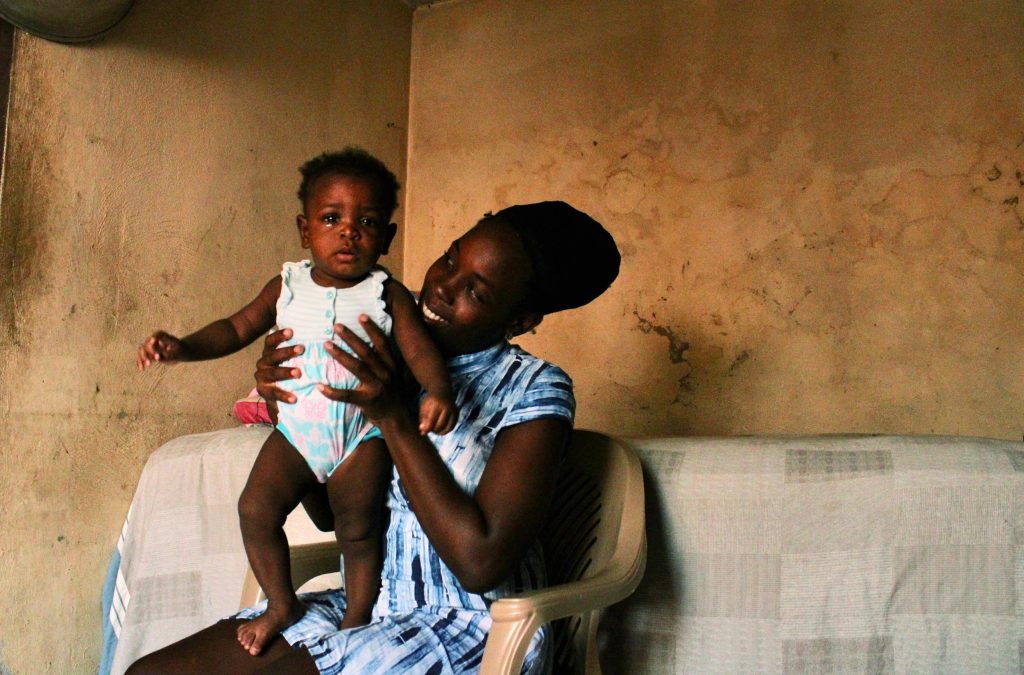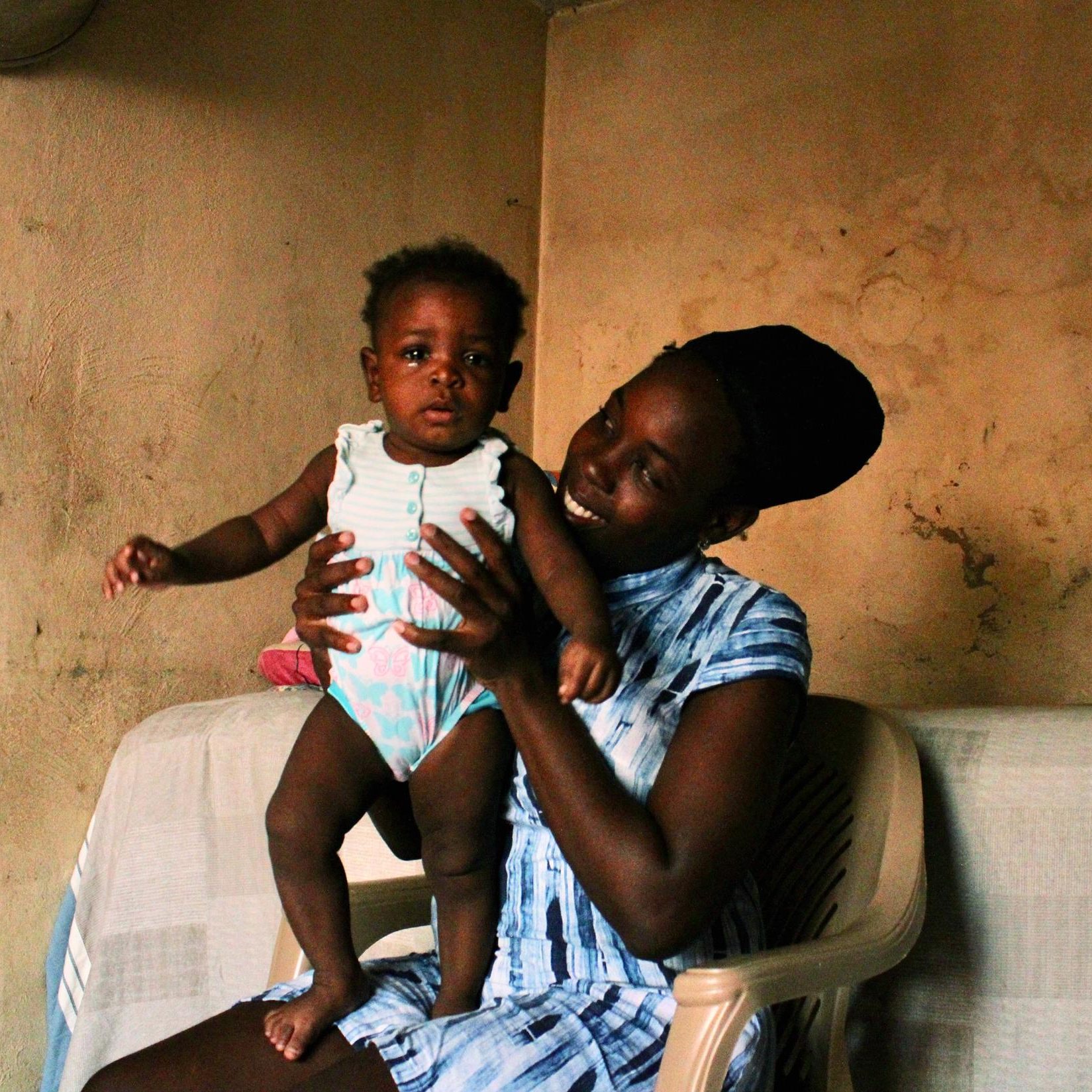In Haiti, 80% of the population lives in poverty, due to armed gangs controlling the country. Roselène Pierre, 24 years old, was forced like many others to leave her home, in an attempt to escape the violence. "The morning I ran away," she says, "I had heard some gunshots, it happened often, but I had no idea that would be the last day I spent in my home." While fleeing, she met AVSI
Roselène Pierre is 24 years old. She was living in Port-Au-Prince, the capital of Haiti, when she was forced to leave. Haiti has nearly eleven and a half million inhabitants, it's the least developed nation in the northern hemisphere and one of the poorest countries in the world. About 80% of the population lives in degrading poverty, 54% with less than a dollar a day. Currently, armed gangs have taken control of the country and of many neighborhoods in Port-au-Prince. This, coupled with natural disasters, political instability and the spread of diseases, makes even the simplest daily tasks - such as finding food, moving around and going to school - more and more difficult.
Roselène, on the runaway from armed gangs in Port-Au-Prince, Haiti
In the last year, the presence of armed gangs has increased in Port-Au-Prince, terrorizing the residents of the poorest neighborhoods to the point that they decide to leave their homes in order to protect themselves and their families. Such as Roselène, who lived in the area of Martissant and fled with her husband, her daughter and one of her aunts. In June 2021, Roselène was running a small business and the birth of her second child was imminent. She was content, even though her life wasn't easy. During the previous summer, as a matter of fact, victims of gang conflicts had started to appear also in her neighborhood. People fled, without even taking anything with them.
"The morning I escaped," she says, "I heard gunshots, as it often happened, but I had no idea that would be the last day I spent in my home. The noises got closer and I saw people running away, so I decided to flee, too, alone, carrying my daughter with me. I didn't know where to go. I left my daughter with a relative of mine and followed the other people on the run, taking refuge in the fish market. The smell was terrible, the hygienic situation unbearable, and it was impossible to have any privacy."
It was at this time that Roselène met the colleagues from AVSI Haiti. AVSI has been working in the country since 1999, which is also the reason why it has access to some of the most vulnerable and conflict-ridden areas, such as Cité Soleil and Martissant. In these places, AVSI mainly focuses on the protection of children and women, who are particularly exposed to the gang violence that has erupted here.
AVSI works with local organizations to fight gender-based violence, by creating safe places for women and children to receive care and protection. Furthermore, it aims at preventing malnutrition by focusing on care and awareness activities getting the entire community involved. "When the AVSI staff arrived at the market, I was praying to be called”, Roselène continued. "When I heard my name, I was very glad. With the money I received, I could rent a small apartment with my cousin. I immediately went to pick up my daughter and bought little clothes for my other daughter that would be born soon."
Roselène is participating in AVSI's project "Urgent Action to Bring Security to Vulnerable People Exposed to Community Violence and Food Insecurity". This project was launched in May 2021 and it is funded by ECHO (the EU Directorate-General for European Civil Protection and Humanitarian Aid Operations).
The main goal of this project is to ensure protection to victims of violence and killings perpetrated in the metropolitan areas of the West and South Departments. This will be achieved through a rapid response system, based on intervention protocols for people in need of humanitarian assistance. In addition, the project activities will improve food security and nutrition by protecting the livelihoods of vulnerable families in the municipality of Ennery and in the areas of Bel Air and La Saline. It will also help reducing malnutrition rates in Cité Soleil, Martissant, and Les Cayes.
"AVSI not only helped me financially, but it also gave me the strength and hope to move forward, mainly thanks to the opportunity to meet and talk with other women.” Roselène explains. "I have learned a lot, especially about taking care of my children."

In Haiti, we say "Bondye konn pouse mouch pou bèf ki pa gen ke". It is a Creole saying that means "God will always come to the rescue of those who cannot meet their own needs." That’s exactly the kind of support I have received. I am deeply grateful to AVSI not only for my new home, but for everything I was able t in this tragic situation."
Roselène Pierre







